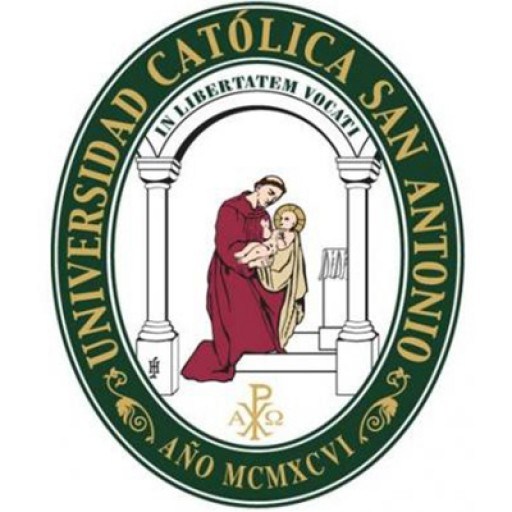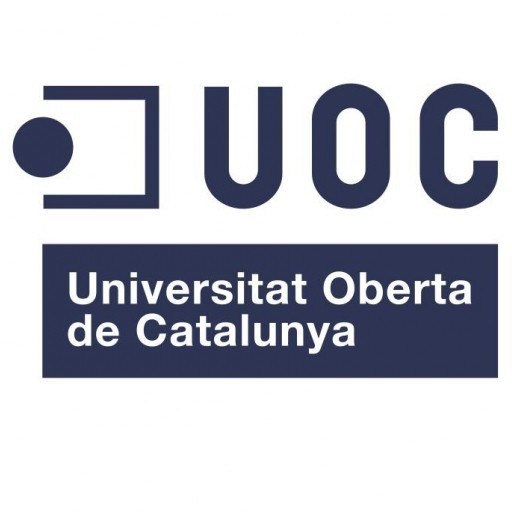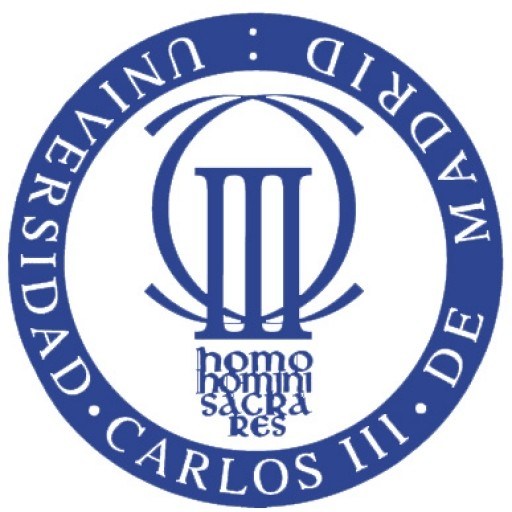Photos of university / #ucam_universidad
The Bachelor’s Degree in Modern Languages at the Catholic University San Antonio de Murcia offers students a comprehensive and interdisciplinary education in the study of contemporary languages and cultures. This program is designed to develop advanced language skills, intercultural competence, and critical understanding of the social, political, and literary contexts of the languages studied. Students will have the opportunity to immerse themselves in Spanish, English, and other major European languages, gaining fluency and nuanced understanding of each language’s unique features and cultural environment. The curriculum combines theoretical courses in linguistics, literature, and cultural studies with practical language training, ensuring graduates are well-equipped for careers in translation, interpretation, teaching, international business, tourism, and diplomacy. Throughout the program, students engage with a variety of multimedia and technological tools to enhance their language acquisition and communication abilities. The program emphasizes not only language proficiency but also the development of analytical skills, intercultural awareness, and research competencies, preparing graduates to work effectively in increasingly globalized workplaces. Studying Modern Languages at this university also offers opportunities for exchange programs, internships, and collaborative projects with international institutions, enriching the educational experience and fostering a global perspective. The faculty comprises experienced professors specializing in linguistics, literature, and cultural studies, dedicated to providing a high-quality, student-centered learning environment. Graduates from this program will be proficient in multiple languages, culturally sensitive, and ready to meet the demands of a dynamic international job market. Whether pursuing careers in translation, teaching, international relations, or media, students will find a solid foundation and a versatile skill set through the Modern Languages program at the Catholic University San Antonio de Murcia.
| MODULE I | |||
| Subjects | Types | Credits | Semester |
| English I | BS | 6 | Q1 |
| English II | BS | 6 | Q2 |
| English III | BS | 6 | Q3 |
| Advanced Academic English | BS | 6 | Q4 |
| MODULE II | |||
| Subjects | Types | Credits | Semester |
| Culture And Civilisation Of English Speaking Countries | BS | 6 | Q2 |
| Culture And Civilisation Of English Speaking Countries Through Audiovisual And Written Texts | BS | 6 | Q3 |
| Culture and Civilisation of English speaking countries in the Digital Era | BS | 6 | Q4 |
| Spanish Civilisation and Culture I | BS | 3 | Q3 |
| Spanish Civilisation and Culture II | BS | 3 | Q4 |
| Latin-American Civilisation and Culture I | BS | 3 | Q6 |
| Latin-American Civilisation and Culture II | BS | 3 | Q7 |
| MODULE III | |||
| Subjects | Types | Credits | Semester |
| Cultural identities in Europe | BS | 6 | Q1 |
| Europe through art | BS | 6 | Q2 |
| Intercultural communication and mediation | BS | 6 | Q2 |
| MODULE IV | |||
| Subjects | Types | Credits | Semester |
| Linguistics applied to communication | BS | 6 | Q1 |
| MODULE V | |||
| Subjects | Types | Credits | Semester |
| Fundaments of ethics | OB | 3 | Q1 |
| Applied ethics: biothics | OB | 3 | Q3 |
| Theology I | OB | 3 | Q1 |
| Theology II | OB | 3 | Q4 |
| Social Doctrine of the Church | OB | 3 | Q6 |
| Humanities | OB | 3 | Q6 |
| MODULE VI | |||
| Subjects | Types | Credits | Semester |
| Debates on Literary Texts I | OB | 6 | Q5 |
| Debates on Literary Texts II | OB | 6 | Q6 |
| Literature and Film | OB | 4,5 | Q7 |
| MODULE VII | |||
| Subjects | Types | Credits | Semester |
| Writing Techniques and Strategies | OB | 4,5 | Q7 |
| Oral Communication Techniques And Strategies | OB | 6 | Q8 |
| Bibliographic Resources | OB | 3 | Q8 |
| Text Analysis, Proof Reading Editing | OB | 3 | Q8 |
| MODULE VIII | |||
| Subjects | Types | Credits | Semester |
| Work placement - first language country I | OB | 9 | Q5 |
| Work placement - second language country II | OB | 9 | Q7 |
| MODULE IX | |||
| Subjects | Types | Credits | Semester |
| Final Year Project | OB | 12 | Q8 |
| Module Elective I* | |||
| Subjects | Types | Credits | Semester |
| German I | EL | 6 | Q1 |
| GermanII | EL | 6 | Q2 |
| GermanIII | EL | 6 | Q3 |
| GermanIV | EL | 6 | Q4 |
| GermanV | EL | 6 | Q5 |
| GermanVI | EL | 6 | Q6 |
| GermanVII | EL | 6 | Q7 |
| Contemporary German Society | EL | 3 | Q5 |
| Contemporary German Economy | EL | 3 | Q6 |
| Contemporary German Geopolitics | EL | 3 | Q7 |
| French I | EL | 6 | Q1 |
| French II | EL | 6 | Q2 |
| French III | EL | 6 | Q3 |
| French IV | EL | 6 | Q4 |
| French V | EL | 6 | Q5 |
| French VI | EL | 6 | Q6 |
| French VII | EL | 6 | Q7 |
| Contemporary French Society | EL | 3 | Q5 |
| Contemporary French Economy | EL | 3 | Q6 |
| Contemporary French Geopolitics | EL | 3 | Q7 |
| Module Elective II* | |||
| Subjects | Types | Credits | Semester |
| Communication: Principles and Strategies | EL | 6 | 42737 |
| Communication Skills | EL | 6 | 42768 |
| Technologies and Communication Design | EL | 6 | 42738 |
| International and Intercultural Communication | EL | 6 | 42769 |
| Institutional and Corporative Communication | EL | 6 | 42770 |
| Foreign Language Teaching Methodology | EL | 6 | 42737 |
| Teaching Foreign Language Literature and Culture | EL | 6 | 42768 |
| Psycholinguistics and Interlanguage | EL | 3 | 42738 |
| Design and Analysis of Authentic Materials | EL | 3 | 42769 |
| Evaluation in Foreign Language Teaching and Learning | EL | 3 | 42770 |
Program requirements for the Bachelor’s Degree in Modern Languages at the Catholic University San Antonio de Murcia include the completion of foundational courses in Spanish, English, and a third modern language such as French, German, or Italian. Students must successfully pass a series of core modules covering language proficiency, linguistics, translation, and cultural studies. The curriculum emphasizes developing advanced communication skills, intercultural competence, and translation techniques suitable for various professional contexts. Additionally, students are required to undertake practical internships or research projects to apply their language skills in real-world settings, which are coordinated through the university’s partnerships with local institutions and international organizations. To graduate, students must accumulate a specified number of ECTS credits, typically around 240, distributed across language courses, theoretical modules, and experiential learning components. Attendance and active participation in classes are mandatory, along with satisfactory performance in both written and oral assessments. The program also emphasizes the importance of autonomous learning and critical analysis, encouraging students to engage with contemporary cultural and linguistic issues. Language proficiency requirements may include passing language-specific tests at the end of each academic year. For international students, proof of language competence in Spanish and their chosen second language may be necessary. Overall, the program aims to produce graduates with a high level of multilingual proficiency, intercultural understanding, and professional readiness to operate in globalized environments.
The financing of the Modern Languages undergraduate program at the Catholic University San Antonio de Murcia is structured to ensure accessibility and support for both domestic and international students. The university offers a variety of funding options, including scholarships, grants, and financial aid programs aimed at reducing the economic barriers associated with higher education. Scholarships are awarded based on academic excellence, financial need, or specific criteria related to the student’s background or intended specialization within the domain of Modern Languages. These scholarships often cover partial or full tuition fees and sometimes include allowances for living expenses and study materials.
In addition to institutional scholarships, students may also apply for government financial aid programs. These grants are designed to support students who demonstrate financial hardship and meet specific eligibility criteria set by the Spanish government or regional authorities. The university collaborates with various scholarship programs established by local, national, and international organizations, providing students with a broad spectrum of funding opportunities. International students are encouraged to explore scholarships available through bilateral agreements or special international student aid packages facilitated by the university.
Students are also advised to seek out external funding sources such as private foundations, cultural organizations, or language and educational grants. The university provides counseling and guidance services to assist students in navigating the application process for various financial aid options. Moreover, students may consider part-time employment opportunities both on and off-campus, which are compatible with their study schedules and provide additional financial support.
The university’s financial aid policies prioritize equitable access to education and aim to support students throughout their academic journey. The tuition fees for the Modern Languages program are competitive within the region, and the university regularly reviews its fee structure to remain affordable while maintaining high-quality educational standards. Payment plans and installment options are usually available to facilitate financial management.
Overall, the Catholic University San Antonio de Murcia demonstrates a strong commitment to making higher education accessible through a comprehensive range of funding options, including scholarships, government grants, external funding sources, and flexible payment plans. This multifaceted approach ensures that motivated students can pursue their passions in Modern Languages without undue financial burden, fostering an inclusive academic environment focused on academic success and personal development.
The various itineraries professional projection for our graduates include, but are not limited to:
- Language unregulated (English / German / French) [1]
- Creation of teaching materials
- Literature and collaboration with academic journals
- Research in linguistics, literature, cultural studies and teaching
- Advice on linguistic and cultural media companies
- Linguistic advice on public and private companies
- Teams of intercultural mediation and multicultural teamwork
- Agents in International Relations
- International cooperation
- Language support in the tourism sector
- Creative Writing
[1] The degree in Modern Languages proposed would enable not to practice as teachers in Early Childhood Education or Elementary Education. However, in relation to secondary education and teaching in Official Language Schools and Vocational Training, as well as a degree of the characteristics of the proposed mandatory requirement is to study the Master's Degree in Teacher Education.





